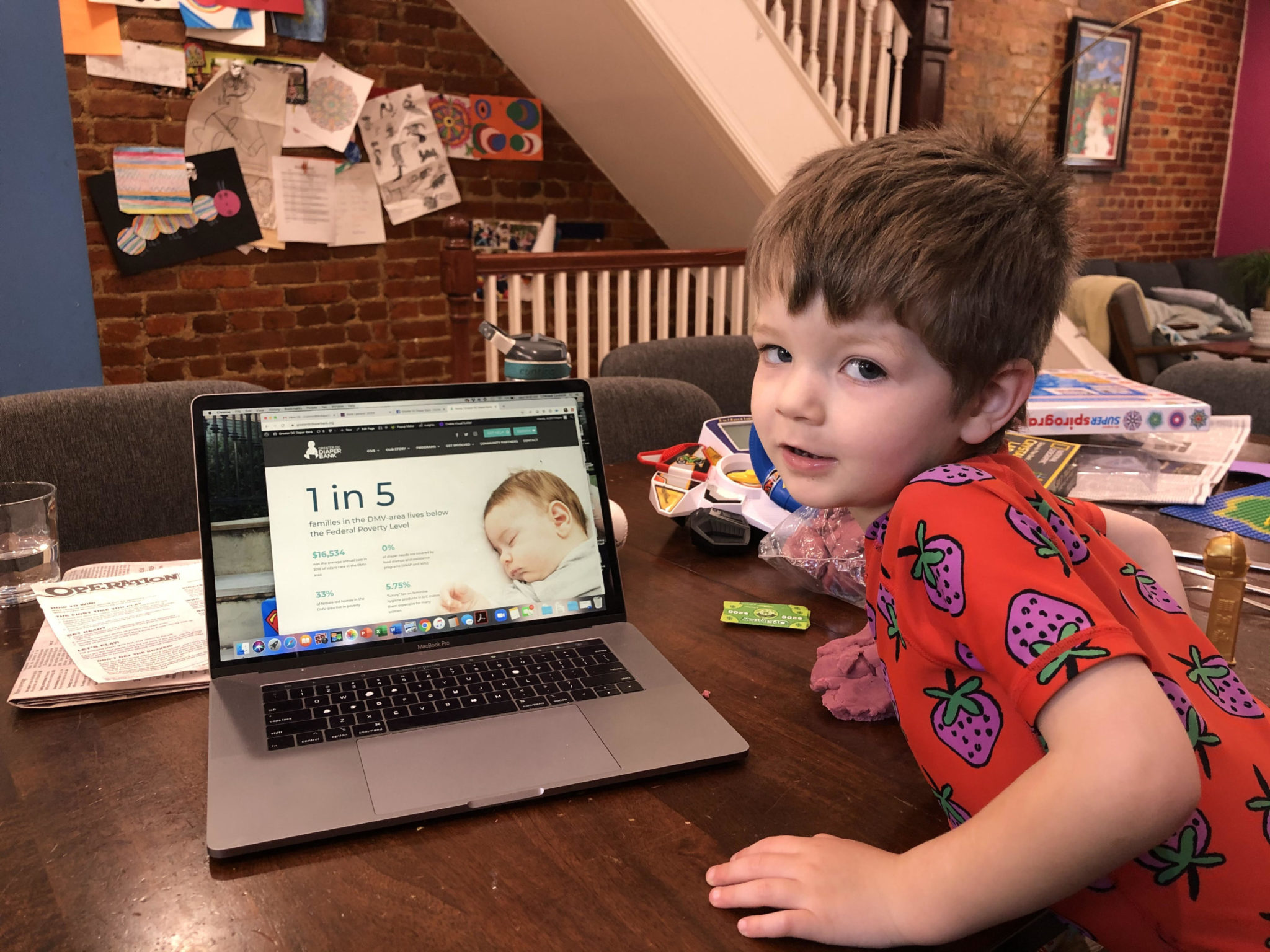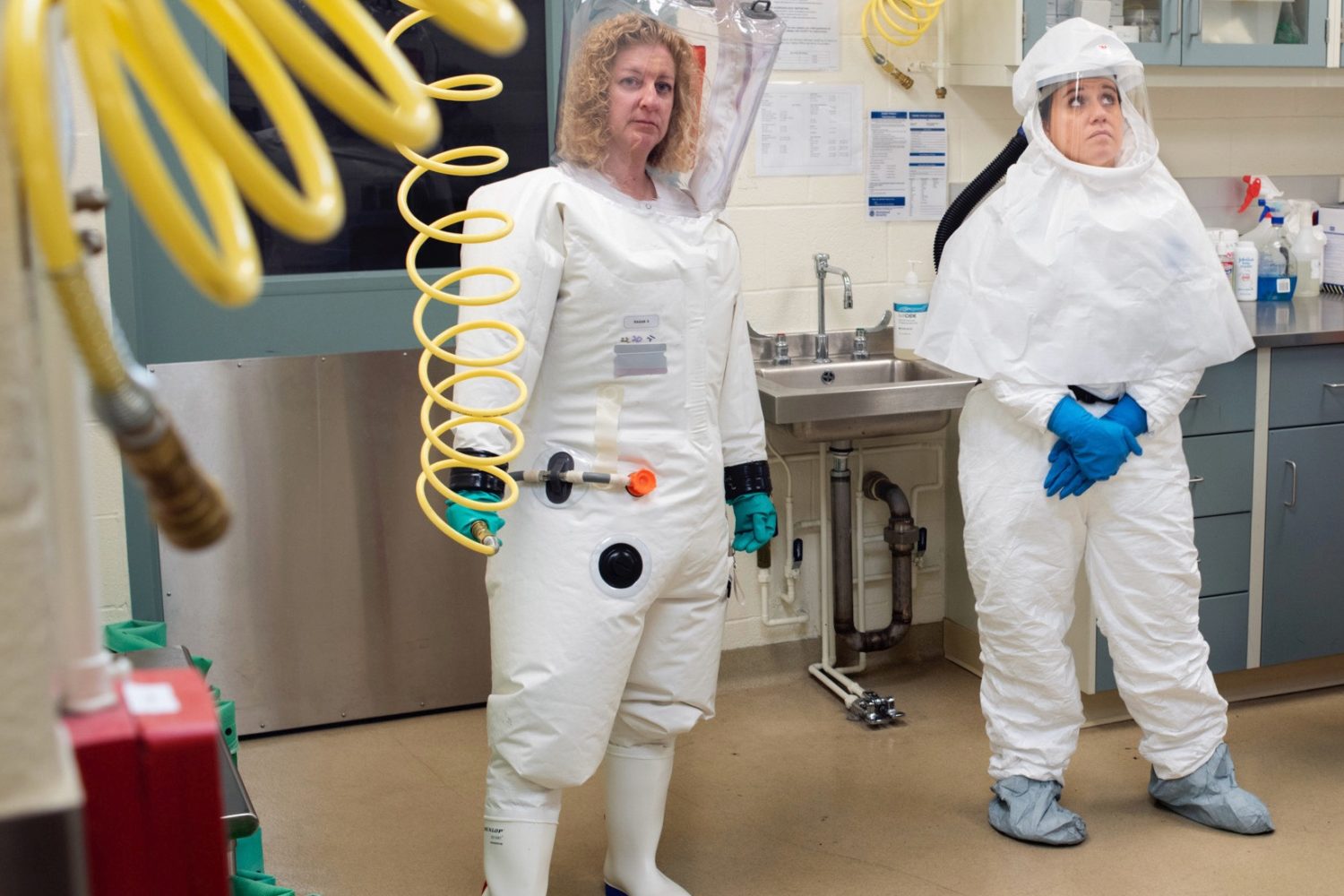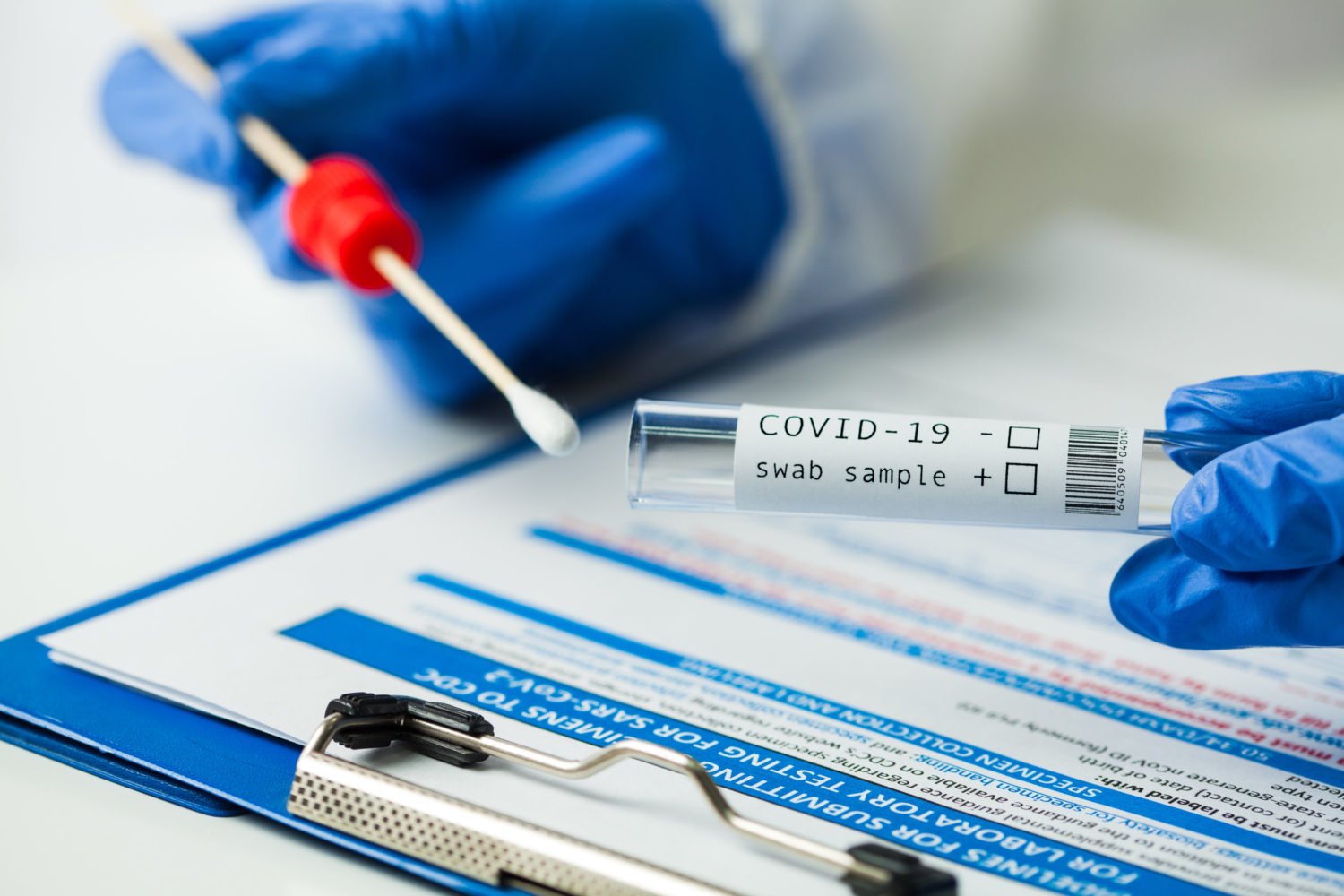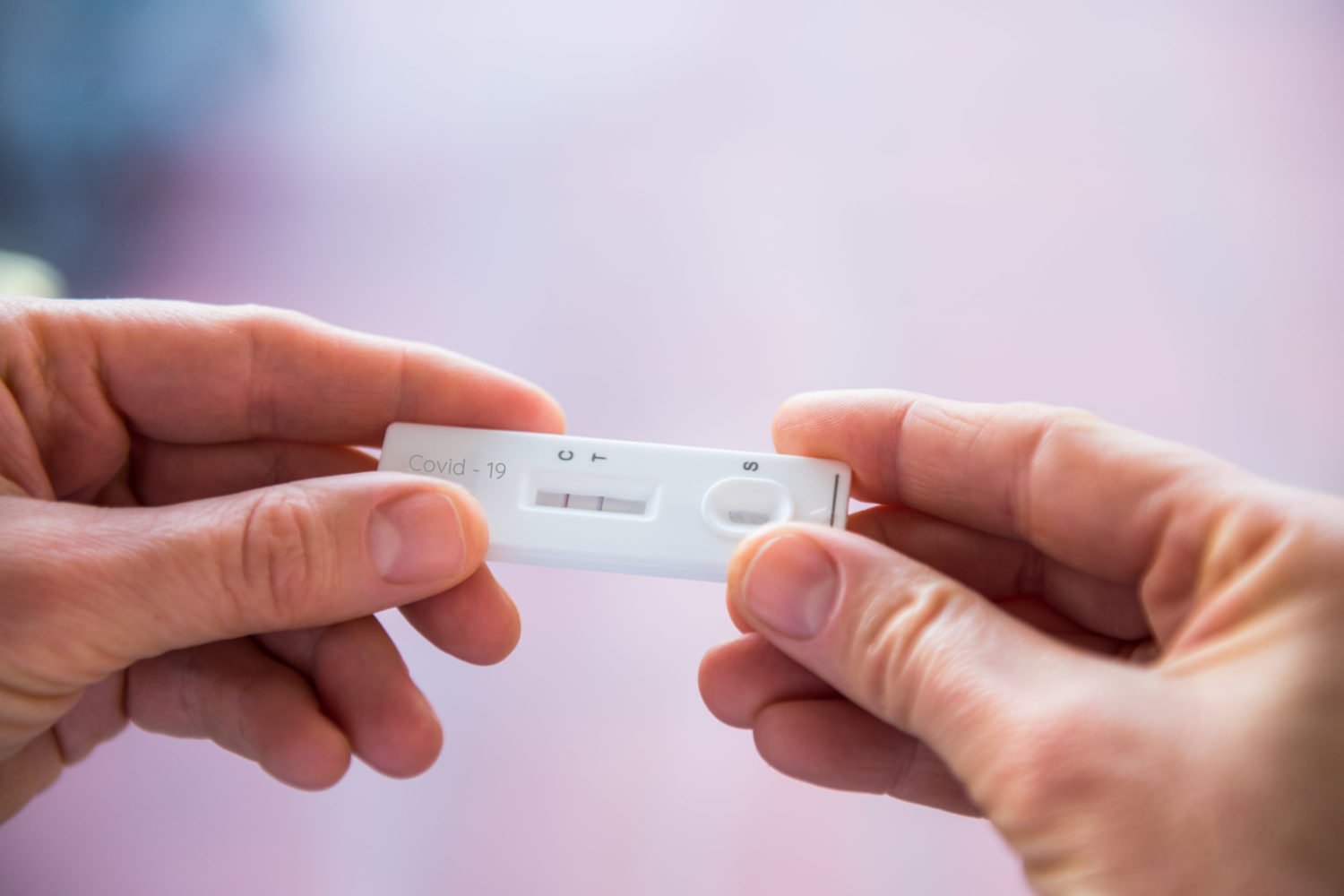A Q&A with Corinne Cannon, executive director of the Greater DC Diaper Bank, which each year distributes more than 2 million diapers—as well as formula, baby clothes, and personal hygiene products—to some 10,000 families in the region:
How has your organization been impacted by the pandemic?
Although our reality at Greater DC Diaper Bank changes hour by hour, we remain committed to supporting vulnerable families with critical resources, now more than ever. We are seeing a significant increase in diaper need around the region and our inventory is low–we’ve got empty shelves in the warehouse for the first time in years–because we got over 500,000 diapers out in the community in the last 10 days.
What’s behind the increase in need that you’re seeing?
The economic reality that we find ourselves in right now. What we have seen is that the families we normally work with are the ones who have lost hours at jobs, have been laid off. These are folks that do a lot of service work. So when our restaurants close, when our offices close, and maid service isn’t needed anymore, these are the folks that are going to be hit the hardest. They were already living on the edge, they’re now even more on the edge. And then we’re seeing another wave of folks, who were not using any of our services before this happened, who now are [because they’ve lost their jobs as a result of the pandemic].
How have you had to change your operations in order to serve the community during the crisis?
A lot has changed in a very short time. We’ve cancelled our family-friendly volunteer sessions so we’ve lost our volunteer power and we’ve shifted into crisis response mode. We’ve increased the number of diapers to our Partner Network. Last week our partners received 200,000 diapers, cans, and cans of formula, and other essentials. We’re adding more and more inventory. We’ve arranged for an order of one million diapers to get to our warehouse in early April and our goal is to secure 1,500,000 diapers in the next month and 500,000 period products to meet the growing need.
We’ve [also] connected with other basic-need providers to set up “Diaper Need Hubs” across the region where families can get food and diapers at one location. We are currently partnering with Martha’s Table, United Communities Against Poverty, Inc. (UCAP), and Northern Virginia Family Services. This week we’ll add three more Diaper Hubs – Cornerstones, United Community, and Educare. We plan to resupply these hubs as this crisis continues.
Have you seen the fundraising environment change as a result of the pandemic? If so, how?
It’s changed drastically in the last month and a half. Before the coronavirus truly hit we saw a sharp dip in donations starting in mid-February and continuing through mid-March. We’ve seen an uptick in the last week and truly the support–and the kind emails (you all don’t know what those do for our spirits!)–is incredible. We are focused on raising the funds needed to support families in this crisis–$250,000 for the diapers and period products alone–but funding for our other programs has evaporated. A bright spot is we are seeing the foundation community mobilize around Covid-19 support in great ways right now and nonprofits are collaborating a lot.
How concerned are you about your organization’s ability to continue fulfilling its mission amid the pandemic?
I am quite concerned about the entire nonprofit landscape–our organization, of course, but also all the other nonprofits that help support vulnerable families and make this a vibrant, more equitable place to live. I think for our work in the short term we will be able to keep helping families. I do think our organization–and those we work with–will look very different in a year.
What’s your organization’s most urgent need right now?
Our most urgent needs are: donations, getting the word out about our work, and everyone doing their part in staying SAFE during this critical time. We need a small army of donors and supporters. I’ve always believed from day one of this work that this is about a large number of people coming together and each giving a little to create the community we want to live in together. We can do this and we can do it together.
What can people in the area do if they’d like to help?
We just launched a campaign to raise $250,000 in small donations: Join our army of army of doers and donors. Help us reach our goal of securing 1,500,000 diapers and 500,000 period products in the next month to meet the growing needs of thousands of families in our region. Consider making a donation which will leverage critical products including diapers, cans of formula and other essential products. Your contribution will allow us to stand with families and show up wherever there is a need. Help get the word out about who we are and our work. Do you know someone who needs to know about our work? Ask them to join you in donating.
Where are you working from these days? How has your daily routine changed?
My kitchen table–surrounded by homeschooling materials for three kids, crystal growing sets, board games, and usually breakfast dishes! My husband and I are both working from home now and we have three kids (10, 6, and 4) in a Capitol Hill rowhouse that seems to get smaller by the hour some days. Each night we sit down and look at the day ahead of us and juggle who has what phone calls and deadlines and add in school Zoom calls and create a schedule that we try to stick to for everyone’s sanity. I’m working before the kids get up and long after they go to bed and taking a lot of calls with a 4-year-old in my lap.
What’s the most heartening or encouraging thing that you’ve witnessed or read about since the onset of the pandemic?
On a micro level I think I’ve been really encouraged by how well our kids are weathering this most days. I’ve had a lot of grief around their lost school year and all they are missing. But then I’ll be struck that my youngest is in absolute heaven–his big brother and sister are home to play with him every day–the joy! And parts of this are incredibly difficult on the kids, but parts are lovely for them, too–my daughter has dived deeply into her love of baking shows; my son is reveling in besting his dad at video games. I try to see it through their eyes as much as I can.
When you get scared or stressed about the pandemic, what do you do to relieve the fear or anxiety?
I do two things–first I take a break and snuggle my kids. They always slow me down. And I focus on the fact that what is happening with this virus is mostly out of my control. What I can control to mitigate the effects I am doing–social distancing, our work at the Diaper Bank, I think we all need to focus on our lanes right now and my lane is a full one that needs me.
What’s a book, movie, or pastime that you’ve rediscovered over the past week?
Does sleep count?? Because we’re not racing to get three kids up, dressed, fed, and out the door, our mornings are a little less crazed. We are all sleeping in until 7 or 7:30 and I think it’s saving our collective sanity. Maybe a silver lining is better sleep hygiene for all of those who are staying home.
What are you most looking forward to when this is all over?
As an extreme extrovert, this is hard–I’m of course looking forward to seeing people I love in person and hugging them. But I’m also really looking forward to getting back the daily mini-interactions that I love so much: seeing a neighbor on the street and stopping to talk about neigborhood-y things for 20 minutes, school drop off chats that turn into half an hour without your realizing it, talking to our volunteers who have become like family about their families. I miss the small pieces of conversation that make up a rich and regular life. I miss it more than I can say.


![Luke 008[2]-1 - Washingtonian](https://www.washingtonian.com/wp-content/uploads/2017/10/Luke-0082-1-e1509126354184.jpg)

















